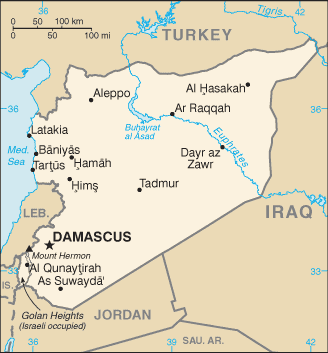Last week’s talks between Turkey, Iran, and Russia on making a deal in Syria were seen as the most promising in years, in no small part because they didn’t involve the United States. The expectation was that since Turkey wasn’t demanding immediate, unconditional regime change, there was some wiggle room for a deal.
 So what happened? Turkey started demanding immediate, unconditional regime change. The Turkish government made some halting efforts to broker a ceasefire with the rebel side, but made it clear the peace wouldn’t go any further without Assad’s removal from power.
So what happened? Turkey started demanding immediate, unconditional regime change. The Turkish government made some halting efforts to broker a ceasefire with the rebel side, but made it clear the peace wouldn’t go any further without Assad’s removal from power.
Which brings us right back to where we were before, with the war raging on, no side willing to give an inch, and the expectation that in the long run the regional powers are just hoping to divide Syria, or what’s left of it, into competing spheres of influence.
At the same time, the Kurdish YPG continues to draw up what amounts to a new constitution for their unrecognized but de facto autonomous regional government, laying out a series of rules for how this will work under a federal system in Syria which doesn’t exist, and which the US at least has loudly opposed, with the White House insisting their goal is a strong central government in Syria.
The Kurdish officials, and a handful of minorities living in their territory, say they expect the new document to be easily ratified, though in the end all of the rules about interacting with the central government are purely theoretical.


